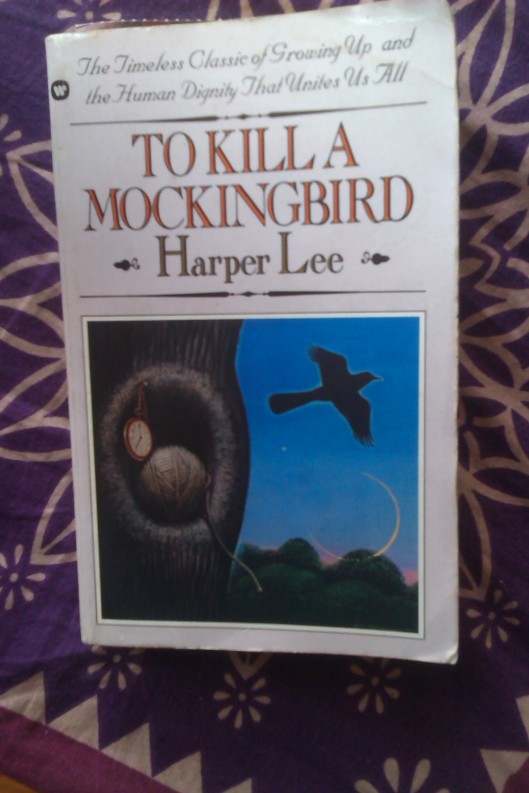Tags
American Literature, Atticus Finch, Conscience, Courage, Court Room, Father, Harper Lee, Lawyer, Mockingbird, Pulitzer Prize, To Kill A Mockingbird
The last time I read the book, I wished I could be Scout, so I could climb into Atticus’ lap and stay in that safe haven. This time though, I wished for a man like Atticus in my future, so I could be assured that my children would be brought up by someone who is more than worthy of emulation. However, what remained constant, was my unadulterated admiration for Atticus’ character.
The story might be retold by Scout, but it is essentially Atticus’ story. Atticus is not a larger-than-life character; he is that average middle-aged lawyer. However, what sets him apart is his strength of character, his courage to fight the aspects of society that he cannot reconcile with, his respect for his children that is duly reciprocated.
Atticus is what each and every one of us wish to be, but very few of us can be. Us, lesser mortals inevitably cave in to our surroundings and circumstances and fall short of that ideal person that we set out to be. Essentially, he could resist the urge to kill the mockingbird even when every last person around him wanted him to do exactly that!
The beauty of this narrative lies in the fact that, even when the story is focussing on Jem or Scout, you realise that their views and actions are clearly influenced by Atticus’. You see it in Scout’s line of reasoning when she explains her impression of ‘Fine Folks’ as “people who did the best they could with the sense they had” and when she observes Bob Ewell and thinks, “All the little man on the witness stand had that made him any better than his nearest neighbours (Negros) was, that if scrubbed with lye soap in very hot water, his skin was white”. You see it in Jem’s actions when he puts his hands around Scout to assure her and says “It ain’t time to worry yet. I’ll let you know when” and in the way Scout observes that although Jem looked nothing like Atticus, “Mutual defiance made them alike.”
When the neighbours or others in Maycomb are talking about Atticus, their admiration is rather evident. So, even when they do not agree with Atticus, they cannot bring themselves to hate him. They still elect him to the state legislature; they “trust him to do right.”
What strikes me most, was his idea of courage. After the death of Mrs. Dubose, he tells Jem, “I wanted you to see what real courage is, instead of getting the idea that courage is a man with a gun in his hand. It’s when you know you are licked before you begin but you begin anyway and you see it through no matter what. You rarely win, but sometimes you do.” He goes on to defend a black man, honourably and fairly.
Even when the rest of the County thought he was wrong, he had the strength to abide by his conscience. Although he defended Mr. Cunningham’s actions as a result of being part of a mob, he never seemed to quite fit into the zeitgeist with his ideals and his sense of justice that was anachronistic at best. He was the kind of person who – in his own words – would climb into another person’s skin and walk around in it.
What endeared me most was his relationship with his children. He was the same man in the court room and at home. He lived his life by example and he lived his life in such a manner that he could face his children squarely. His children felt free to ask him any question and he on his part, never lied to them. He treated his children with respect and they seem to recognize that and in turn do their utmost to be worthy of that respect, and in the rare occasion that Atticus asked them to not do something, they found it in them to “take being called a coward for him”. On his part, he was content knowing that they knew he knew that they try!
All in all, Atticus, to me, is the epitome of manliness!


Have you read the book ‘ Kane and Abel’ by Jeffrey Archer? If not, you probably should. Trust me, you’ll love it.
P S : I know, this comment is out of place.
Now I’m curious, what made you think I would love it. And no, I haven’t read it, but I might just read it now.
Well, just one thing to say; you’ll know it when you start reading it. Even the first line captivates you (worked for me! ) and you never want to put the book down.
You’ll know it when you read it. Even the first line captivates you ( worked for me!) and you wouldn’t put the book down until you finish reading it.
Alright. I shall try to get my hands on it, then. 🙂